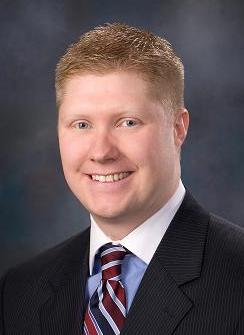Transportation funding has to be considered in three categories.
- Maintenance of existing roads and bridges
- State funding of new road construction
- Local funding of new roads and public transportation
Within each category, the potential solution differs. In the past few years, State funding for new road construction has revolved around GARVEE bonding. GARVEE bonding is essentially the process of receiving future federal road funding today. The State pays interest on the advancement of the money. This year the Legislature approved an addition $134 million through this funding mechanism.
The funding mechanism regularly considered for local funding of new roads and public transportation is the local option tax. Local option taxes can take a variety of forms, but are usually in the form of a sales tax. Because I've written about this before, I will skip it for now.
Now, as for the maintenance of currently existing roads and bridges, this is where things get complicated and political. Lets get a couple things out of the way from the outset. First, no one wants to pay more taxes. Second, maintenance is way past due. These two conditions are seemingly juxtaposed. The real problem surrounding this issue is the fact that everyone has a different solution. Some folks, like the Governor, want to rely solely upon increases in vehicle registration fees to get new revenue. Others want to have a more balanced approach by raising vehicle registration fees, semi truck fees, license plate fees (like the one I am debating against right now), and of course taxes on gasoline. I for one do not like the idea of putting all the eggs in one basket. That being said, I also don't think it is appropriate to charge those that drive little the same as those that drive more. I also have a fundamental problem charging someone that has 2006 Ford Focus the same as someone with an 2006 Audi A4.
More than this, it is incredibly frustrating when those that advocate for more funding (which is absolutely necessary) fail to recognize that funding doesn't occur in a vacuum. What I am saying is that when the Legislature passes a huge tax break for businesses worth $120 million (H 599) it exacerbates the problem. This $120 million will have to be made up someplace and that will likely be to the individual taxpayer. Now, we are going to ask you to dig deeper. When does it stop?
So, what should we do? In my opinion, I'd do the following:
- Increase fees on registration based upon value of the vehicle rather than the current practice of looking at the age. I think that this is better because as I demonstrated model year is not indicative of actual value. Yes, it may be more indicative of miles driven, but this is also an issue of fairness.
- Increase fees on semi trucks. I'm not sure how much this should be, but it should be valued at the amount of damage that semi trucks cause to our roads.
- Add a small sales tax on the sale of fuel. This would be a better proxy to the use of the roads. This would be beneficial to our community members, especially the elderly, that tend to take short trips.
One solution that I didn't mention, but I think needs serious consideration is the use of toll roads. This wouldn't be necessary in most places in the State, but it could provide some additional revenue in stretches of interstate that need the help.
To conclude, I don't like the idea of putting more of the burden on individual taxpayers when the tax burden is already so heavily on their shoulders. Ultimately, a total review of the tax system must be conducted.


No comments:
Post a Comment